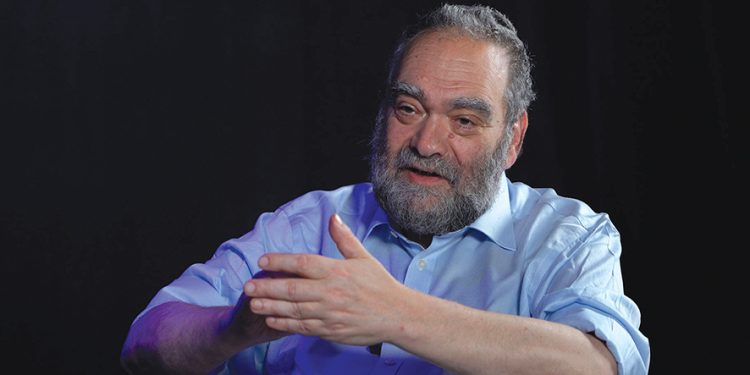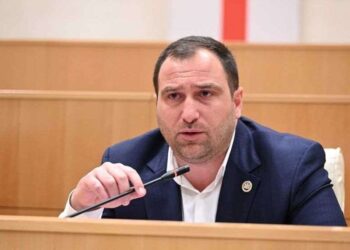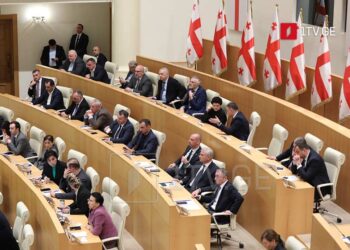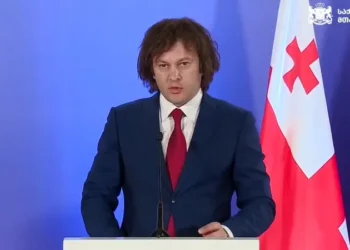Radio Free Europe’s Georgian Service sat down with Andrei Zorin, Professor and Chair of Russian of the University of Oxford and Fellow of New College to discuss the Ukraine war and the “soul-searching” that seems to be going on in European universities and among scholars that teach and research Russia.
“This horrifying war in a way coincided with a major wave in Western academia, which much preceded the war: the so-called decolonization tradition that claims it is wrong to concentrate on the center or the empire without seeing the so-called peripheries, without paying attention to the subjectivity of the people around, and so on and so forth,” Zorin tells us. “And the general argument is that we should decolonize Russian studies; we should concentrate more on the former peripheries of the empire. And it makes a lot of sense, actually, unless you overdo it in the other direction. And there are a lot of risks in it, because you can’t study the imperial legacy without studying the center.”
Are you alluding to the ongoing momentum spearheaded by Ukrainians to reevaluate some of the Russian classics from the post-colonial and post-Imperial prism (Pushkin, Lermontov and Dostoevsky seem to be the three main offenders)?
It is understandable, yes. Because, especially in the former Soviet republics, Russian literature was seen as a part of the imperial power, and when monuments to Pushkin are torn down in Ukraine, it’s not so much about his poetry, and I think it would be very wrong to equate the way this or that writer was used with the actual legacy. Of course, there were a lot of imperial motives in Pushkin’s poetry, there’s no denying it. But at the same time, this is the face of empire. And it’s absolutely not unique to the Russian Empire.
The argument is that he was a product of his time, then?
Historically, major poets do identify themselves with their countries. Can we start blaming Shakespeare for not recognizing Scotland, and say everything good in Macbeth comes from England? Lermontov was very ambivalent. He saw this expansion of empire as inevitable, and he wrote that it was inevitable, but at the same time, he saw it as dangerous to human freedom. We can analyze his attitude to the annexation of Georgia in Mtsiri, which is deeply ambivalent. On one hand, he says, “we did protect it.” But at the same time, they’re captured. “Za Graniu Druzheskix Shtikov” – behind friendly bayonets. And this probably produced security, but was hostile to freedom, dignity. He is also extremely ambivalent about imperial expansion. Tolstoy, though, is absolutely unambivalent: he is adamantly against it.
On Lermontov, I think it’s the “Bezhali Robkie Gruzhini” (“the cowardly Georgians fled”) that irks Georgians the most.
I can tell you a funny story. I remember being told by my father that he was at a dinner with a lot of wine in Moscow, where Georgian writer Otar Chkheidze was present, and he had to leave, and he stood up from the table, and somebody jokingly said to him: Bezhali Robkie Gruzini, to which he immediately answered: “Proshay, Nemitaya Rossia,” using another quote from Lermontov to beat the first. The Georgians, according to Lermontov, came voluntarily into Russia’s fold, so it became Russia’s duty to protect Georgia. But at the same time, it’s not a compliment. The Chechens didn’t come voluntarily. “They’re going to be crushed. But they are heroic.” And his view of the imperial expansion is very mixed, difficult, and needs untangling. Pushkin was more benevolent about it, which I would not blame him for. But in the next generation, Lermontov, of course, had first hand experience, unlike Pushkin, participating in the war. And then in the next generation we had Tolstoy, who was powerfully against any imperial expansion. So you can’t bring all Russian literature into this field and say it is purely imperialistic.
Russia does not see Ukraine as a brother but as one whole, part of its one body. How is Georgia seen in that regard?
It might sound mildly surprising, maybe not, as Ukrainians and Belarusians were never recognized as different. They were part of a major community. Georgians, I would say, were considered to be number two in importance within the popular and official mindset. Within the family of Russia nations, of course, you would never consider Georgians as being Russians. But you know very well, in the iconic photo of the most important event in national memory – the putting of the red flag on the Reichstag, there are two people: one of them was Russian, the other one is Georgian. To what extent it was dependent on Stalin being Georgian, I’m not sure. From the first point of view, Georgians were considered at least not to have been conquered, but to have willingly joined. Secondly, they were Orthodox. Yet, they are distinctly non-Russian, which allows for this feminine reunion. I think the main attitude was definitely very paternalistic, but at the same time, that is, if you use this family metaphor of brotherly nations, Georgia is the favorite of the junior brothers.
Has it remained the same since the fall of the Soviet Union and since the two wars in the 1990s and the one in 2008?
There was a lot of resentment around the war in 2008 and, for a while, it seemed that it was basically over. But this is the long held pattern. And now, those people would again say, “what do they want? Why are they unhappy? Yeah, we were also nice. We also have many Georgian friends. I’ve been there and was treated to excellent wine and barbecue,” and so on.
It’s politicians who are “mutiat vodu,” then – stirring the water.
Yes. That would be the general attitude. It will always be paternalistic. They will never consider Georgia an equal. “We are the Great Imperial nation, they are the small, but they’re nice.”
Interview by Vazha Tavberidze














